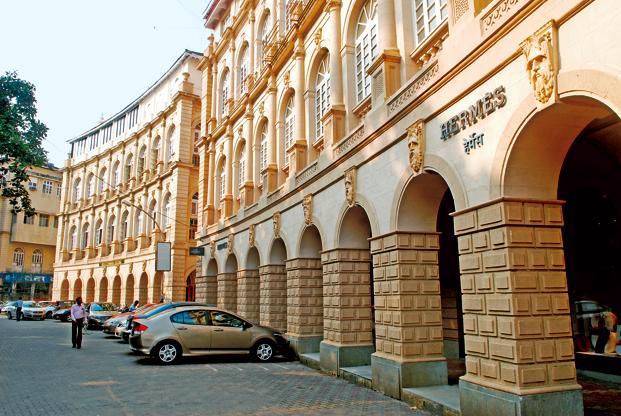Inadequate real estate is one of the major challenges of the fast growing luxury retail
industry in India.
Hermès Horniman Circle, Mumbai, India’s first stand-alone, Luxury Retail Store
Over the past few years there have been a few setbacks in the Indian luxury retail market. However, the economy is back again and supports the rationale of spending on luxury goods. The country’s elite is once again aspiring for a luxury shopping experience.
That said, luxury retail is still not as attractive as it should be, with real estate being the major hindrance for luxury purveyors.
Location
The most strategic locations for luxury retail are neighbourhood that are around high income catchments. In Mumbai, these would be locations like Breach Candy, Colaba and the Linking Road stretch from Bandra to Santacruz. It is unfortunate that these locations have no existing or future scope for organised retail. They are dotted with small residential and old tenanted commercial buildings that are slowly being converted into luxury retail spaces. In the bargain, retailers are forced to compromise on the overall outlay of the stores, resulting in a shopping experience that lacks the luxury element.
This situation isn’t specific to Mumbai. In New Delhi, a city with a huge potential for luxury retail, upmarket retail locations like Connaught Place and Khan Market are inadequate and limited in opportunities. Thus, the country lacks proper high-street infrastructure for luxury retail and brands are burdened to cre
Palladium Mall, Mumbai
High Cost
The limited supply of strategic high-street locations make them highly expensive. Rentals vary from Rs 450 to Rs 550 per sq ft at strategic high-street locations. Product categories like jewellery, which have high profit margins, are very attractive to organised investors. The returns from such stores – as compared to those from international brands like Burberry, Giorgio Armani, Fendi or Gucci – are higher, irrespective of whether it is based on rents or on a profit-sharing model.
Are such high rentals justified by footfalls? For a luxury store to be successful various service factors come into play such as easily accessible parking, which many high-street locations are unable to offer.
Tenancy Laws
In many cities, properties in prime locations are bound by outdated tenancy laws. They are privately leased and sub-leasing is not permitted by law. When original lease holders sub-let their properties the tenancy contract becomes illegal and hence unprotected. Often, on paper, the sub-leaser acts as a franchisee of the retail format while the master franchisee conducts the actual business on-site. Complications like these deter international luxury retailers to set up businesses in these locations.
UB City Mall Bangalore
Luxury Malls
A large number of luxury mall developers in India are real estate companies with a background in creating residential or commercial properties. While they do hire the best architects for each project, the principles of running and creating an organised luxury retail structure are often ignored. Spaces like these need to not only attract footfalls but also allow brands to convert them into sales. This is a result of collaboration of various factors — promotion, ambience, catchment-specific discounts and schemes, merchandise, fail proof supply chain and well-trained staff. Developers, investors and retailers are beginning to understand this need and retail spaces with the correct formula are slowly emerging in markets like New Delhi, Mumbai, Bangalore and Pune.
Building a luxury mall is an expensive project and can cost about Rs 40,000 per sq ft. To make a profit on their projects, developers have to rent out their property at Rs 800 per sq ft. In New Delhi, land is controlled by the Delhi Development Authority, which auctions it to the few builders that are invited for the bid. However, the structure has to be developed in conformation to the master plan of the DDA.
(Anuj Puri is Chairman and Country Head, Jones Lang LaSalle India)



